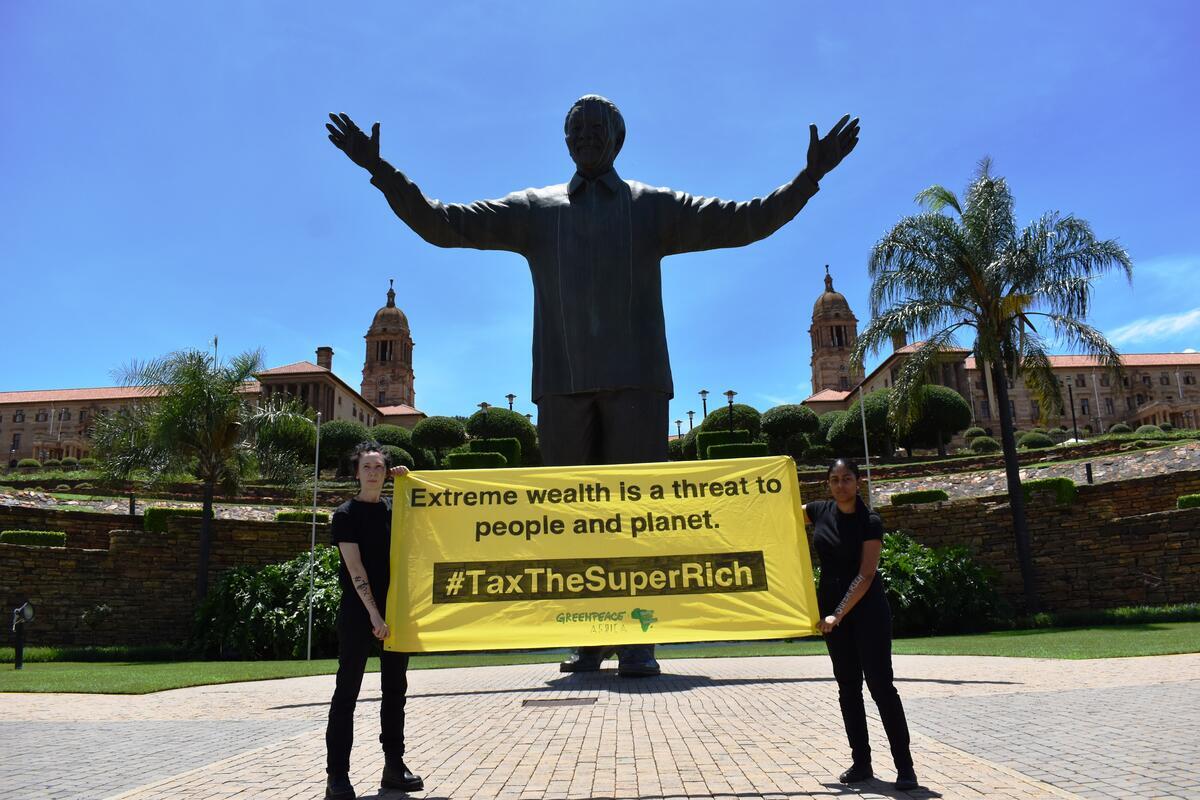What does that look like in a world where AI can influence electoral processes and shift democracy as we know it?
Greenpeace seeks to shift power by unleashing and promoting people’s active involvement in elections, public budgets, and other forms of civil and community participation. When transparency is ensured, elections represent an opportunity to enable climate and social justice at a systemic level.
We spoke to data and social scientist Dr. Rumman Chowdhury in the new episode of SystemShift, a podcast that explores how we can move from a world that serves the economy to an economy that serves people and the planet.
How is AI affecting democracy?
According to Dr. Rumman, generative AI is rapidly changing the way we perceive the world, particularly in the political sphere. It’s not just about deepfakes, it’s about how AI content is already skewing perceptions.
She also explained how manipulation looks like in the AI era and how generative AI is amplifying the threats against democracy. The effects of social media on polarization are undeniable, with filter bubbles and ideological silos becoming the norm. Generative AI takes this further, amplifying existing challenges and creating new ones.
Is it really a new issue? Not entirely
The weaknesses of democracy are not new but are being magnified as AI advances. As the podcast co-host Joycelyn Longdon said, “AI is something that amplifies the issues that are already prevalent in our democratic systems.”
By muddying the waters of what’s real, generative AI risks further eroding trust in institutions and science. Remember the film ‘Don’t Look Up’? In a world increasingly driven by virality, generative AI exacerbates distrust by flooding the world with content that blurs the line between facts and opinions.
At the heart of these challenges is data. Unlike money, which is finite, data is endlessly reusable, making it a powerful currency in the modern world. And the super-rich know this. “They don’t actually need more money. They’re looking for power, influence and in a sense, almost immortality,” said Dr. Rumman.
This dynamic shapes not only tech but also politics, where control of narratives can determine elections.
Putting the focus on democracy
As 2025 continues with elections in countries like Germany, India, and Canada, the intersection of AI and politics will only grow more significant.
In regards to privacy, for instance, throughout history, our most private information has been held by doctors, lawyers, accountants, and therapists, among others, who have a fiduciary duty to use our private information and their expertise to help us. These same rules need to be applied to AI. Dr. Rumman implied that laws and regulations should be the answer.
Could AI represent a historic opportunity to strengthen democracy and shift our socio-economic system for the better? For that to happen, AI and the policies around it must put people and the planet at the centre, instead of greed, profit and power.
What’s our role as individuals? What can we do?
- Listen or watch the new episode of the SystemShift podcast – which inspired this blog post!
- Demand your government to quickly and effectively regulate AI
- Keep participating actively in your local elections and other civic spaces
- Report fake news and misleading content
- Help others understand and identify AI-generated content to avoid the proliferation of dis- and misinformation
- Choose technology by small organisations that use your data ethically and responsibly



